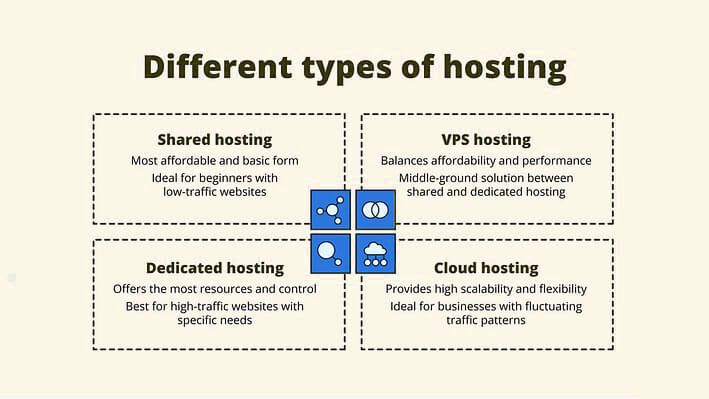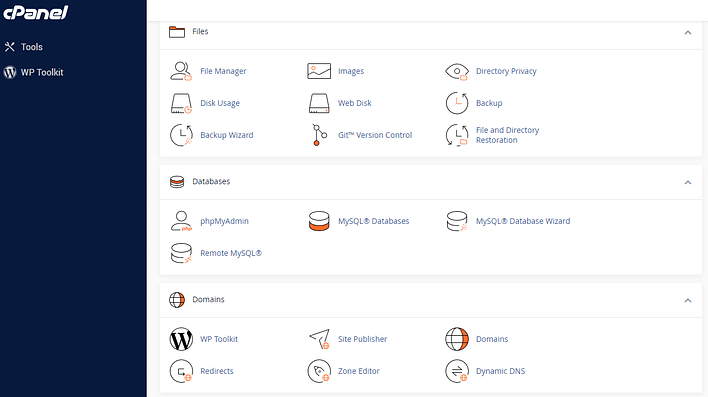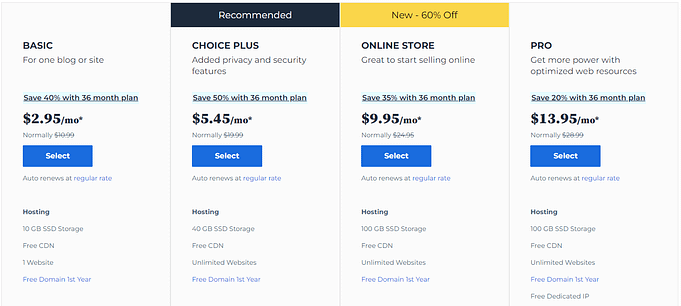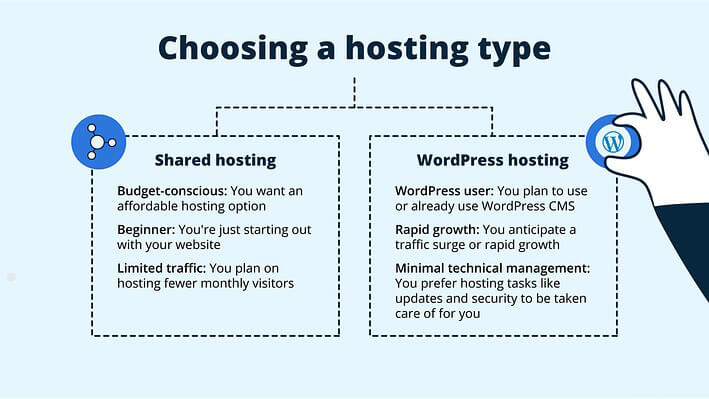With 43% of websites built on WordPress, it's evident that the platform holds a significant presence in the digital landscape. However, the question arises: should you opt for a WordPress hosting plan, or is shared hosting a more suitable choice for your WordPress website?

In reality, the optimal decision varies for each individual. Factors such as your budget, website traffic, and experience in web development play pivotal roles in guiding your choice.
Let's break it down in simple terms. Here's a straightforward guide to help you determine the hosting option that aligns best with your needs, whether you're managing a small business website, an eCommerce store, or a blog.
Introduction To Shared Hosting
Shared hosting is a hosting plan where multiple websites share the same server resources, including RAM, storage, and bandwidth. Its main advantage lies in its affordability. However, shared hosting can be susceptible to slower speeds, depending on the hosting infrastructure.
Create Amazing Websites
With the best free page builder Elementor
Start NowTo illustrate, consider shared hosting as a highway. Late at night, with less traffic, the road is smooth. However, during the day, when there's a surge in traffic, the road becomes congested, resulting in a slower journey. In this analogy, the road symbolizes your website.
In a 2022 survey, it was found that 53% of online shoppers expect a website to load within three seconds. If your website is sluggish or experiences unexpected downtime, there's a risk of losing customers because today's visitors anticipate a swift and reliable online experience.
Introduction To WordPress Hosting
WordPress hosting shares similarities with shared hosting, but it differs as it is specifically optimized for websites built with the WordPress platform. Hosting providers often handle WordPress-specific security measures, speed optimizations, updates, and backups.
This specialized approach in WordPress hosting ensures a more reliable and smoother experience for users. It's crucial to consider the specific type of WordPress hosting you opt for, whether it's shared, dedicated, cloud, or VPS hosting.
Dedicated hosting provides exclusive benefits, such as lightning-fast response times and near-unlimited bandwidth and scalability. Shared hosting, on the other hand, is suitable for lower-traffic websites, while VPS hosting serves as a middle ground between shared and dedicated options. Each type of hosting caters to different needs and preferences.

Shared hosting vs. WordPress hosting: A full comparison
To recap, shared hosting is a cost-effective hosting option where multiple websites share server resources, providing an affordable solution. However, it may result in slower speeds based on the hosting infrastructure, akin to a busy highway during peak hours affecting your website's performance.
WordPress hosting, while similar to shared hosting, is optimized specifically for WordPress websites. This entails WordPress-specific customization, automation, and optimization for an enhanced experience. It is crucial to consider the type of WordPress hosting, such as shared, dedicated, cloud, or VPS hosting, depending on your website's needs.
Ease Of Use
In terms of ease of use, shared hosting often offers a user-friendly control panel like cPanel, making it suitable for beginners and those less tech-savvy. WordPress hosting, tailored for WordPress users, provides one-click installations, auto-updates, and built-in optimizations, catering to all experience levels.
Website Management

Regarding website management, shared hosting centralizes tasks in a convenient control panel but may limit control and customization. In contrast, WordPress hosting, with its specialized environment, allows centralized management through the WordPress dashboard, offering more control and customization options. Managed hosting, a subset of WordPress hosting, provides additional support from WordPress experts, handling tasks like updates and security.
Performance

Performance is crucial for user experience, where website speed directly impacts conversion rates. Shared hosting may result in mixed performance, influenced by the host and traffic, potentially causing slower speeds during high-traffic periods. WordPress hosting, with advanced features like plugins and caching, optimizes website capabilities, enhancing speed, performance, and security.
Customer Support

Customer support varies between shared and WordPress hosting. Shared hosting support is generally more generic, while WordPress hosting support is more in-depth, addressing specific CMS issues. Bluehost, offering both shared and WordPress hosting plans, provides 24/7 support for comprehensive assistance.
Affordability
In terms of pricing, shared hosting plans are budget-friendly, starting at a few dollars per month, suitable for new website owners or low-traffic websites. WordPress hosting plans may cost slightly more but offer enhanced features, optimizations, and dedicated support. Bluehost's shared and WordPress hosting plans start at $2.95/month for a 12-month plan, ensuring affordability and value.
Shared hosting vs. WordPress hosting: How to Pick One
Ultimately, the choice between shared and WordPress hosting depends on your specific needs, budget, and website requirements. When determining the right web hosting solution for your needs, several key questions should be considered.
Budget: Affordability is a critical factor, and both WordPress and shared hosting plans are generally cost-effective. Shared hosting tends to be more budget-friendly, making it a suitable choice for those with financial constraints.
Expected Traffic: The volume of anticipated website traffic is another essential consideration. If you expect a high number of monthly visitors or anticipate rapid growth, WordPress hosting, with its enhanced capabilities, may be the more suitable option. However, shared hosting allows for scalability as your website expands.
Technical Expertise: Your level of technical expertise plays a crucial role in choosing the right hosting solution. If terms like "cPanel" or "FTP" seem daunting, managed WordPress hosting, with its user-friendly interface and additional customer support, may be a more comfortable fit.

WordPress Usage: If you plan to use WordPress as your Content Management System (CMS), opting for WordPress hosting offers specific advantages. Features like one-click installations and automatic updates simplify website management, making it particularly convenient for WordPress users.
Time Allocation for Website Management: Consider how much time you are willing to dedicate to website management. A managed WordPress hosting plan is well-suited for those focused on business growth and content creation, as it takes care of technical aspects. On the other hand, shared hosting is ideal for individuals who enjoy hands-on management and occasional updates.
By addressing these questions, you can make a well-informed decision based on your budget, technical proficiency, traffic expectations, and desired level of involvement in website management.
Wrapping Up
In summary, both shared hosting and WordPress hosting present distinct features tailored to overlapping yet distinct needs. A standard shared plan proves to be a budget-friendly choice, particularly suited for beginners or smaller websites with moderate traffic. Conversely, WordPress hosting provides additional personalization, scalability, and enhanced security, making it an advantageous option for larger websites and established businesses.
At Bluehost, their shared hosting and WordPress hosting solutions maintain the same affordable pricing and exceptional features. However, it's worth exploring other providers such as Namecheap, Godaddy, Hostgator, 10web, among others, to find the hosting solution that best aligns with your specific requirements. Each option may offer unique features and benefits, so it's valuable to compare and choose the one that suits your website's needs and goals.




